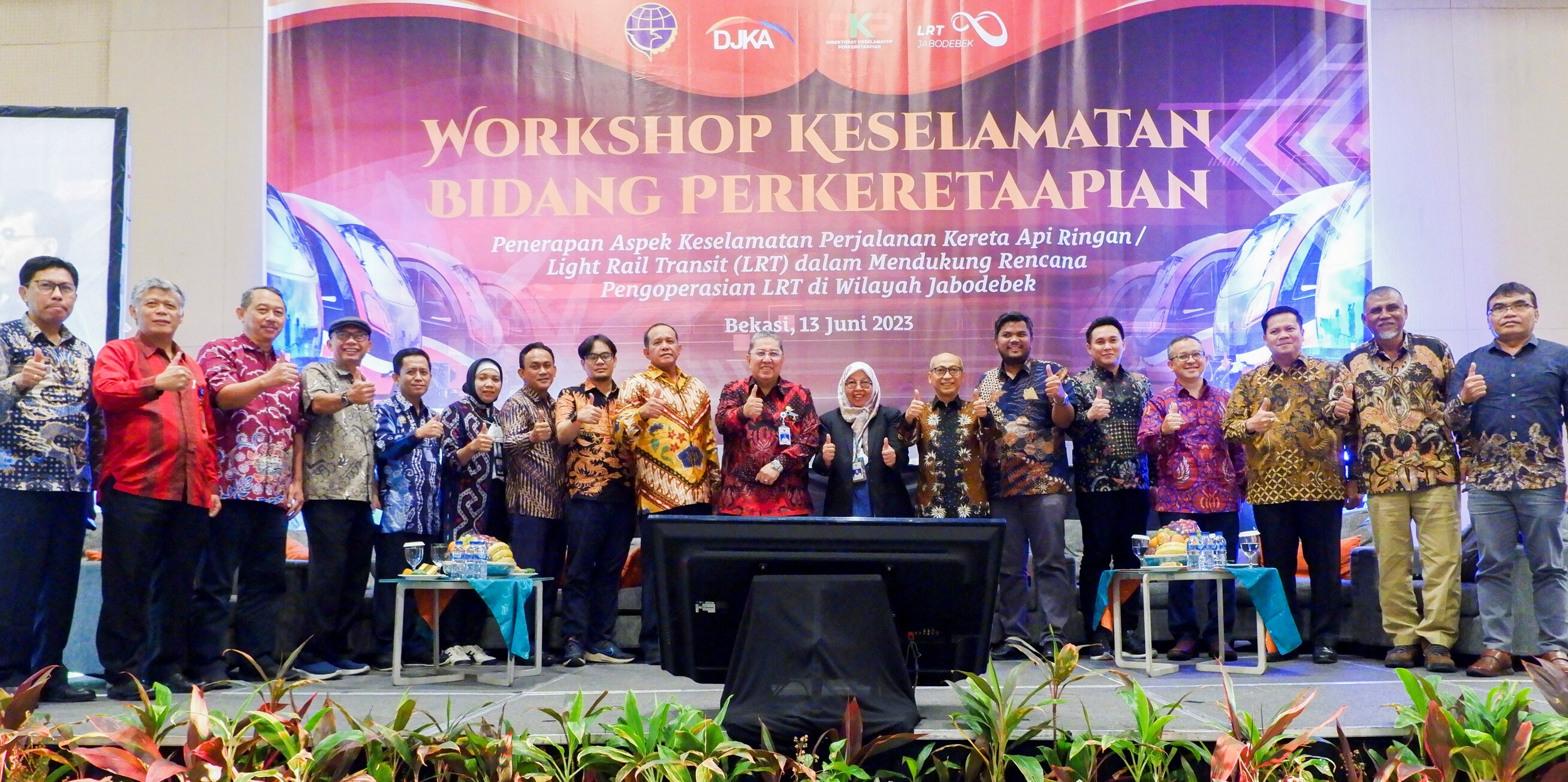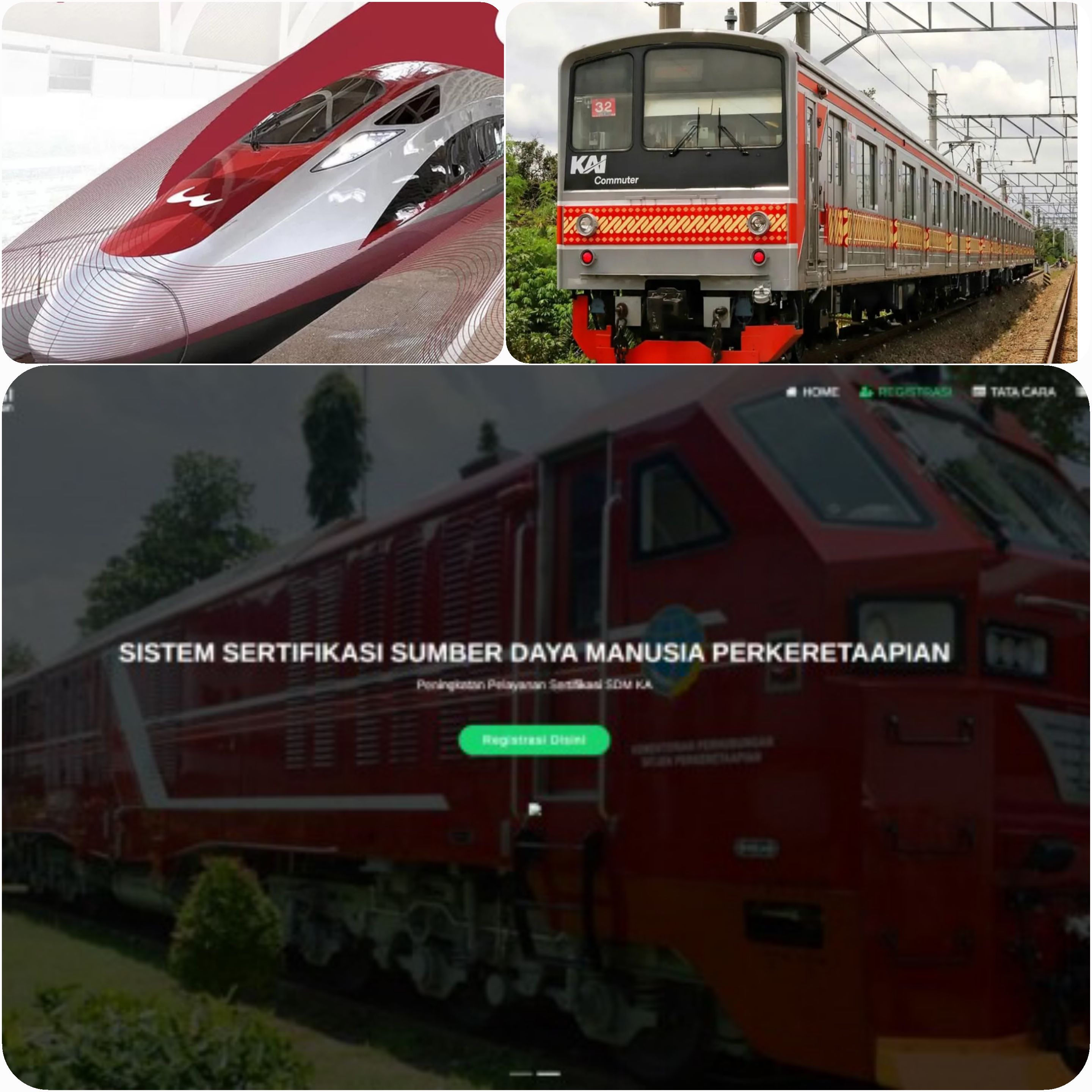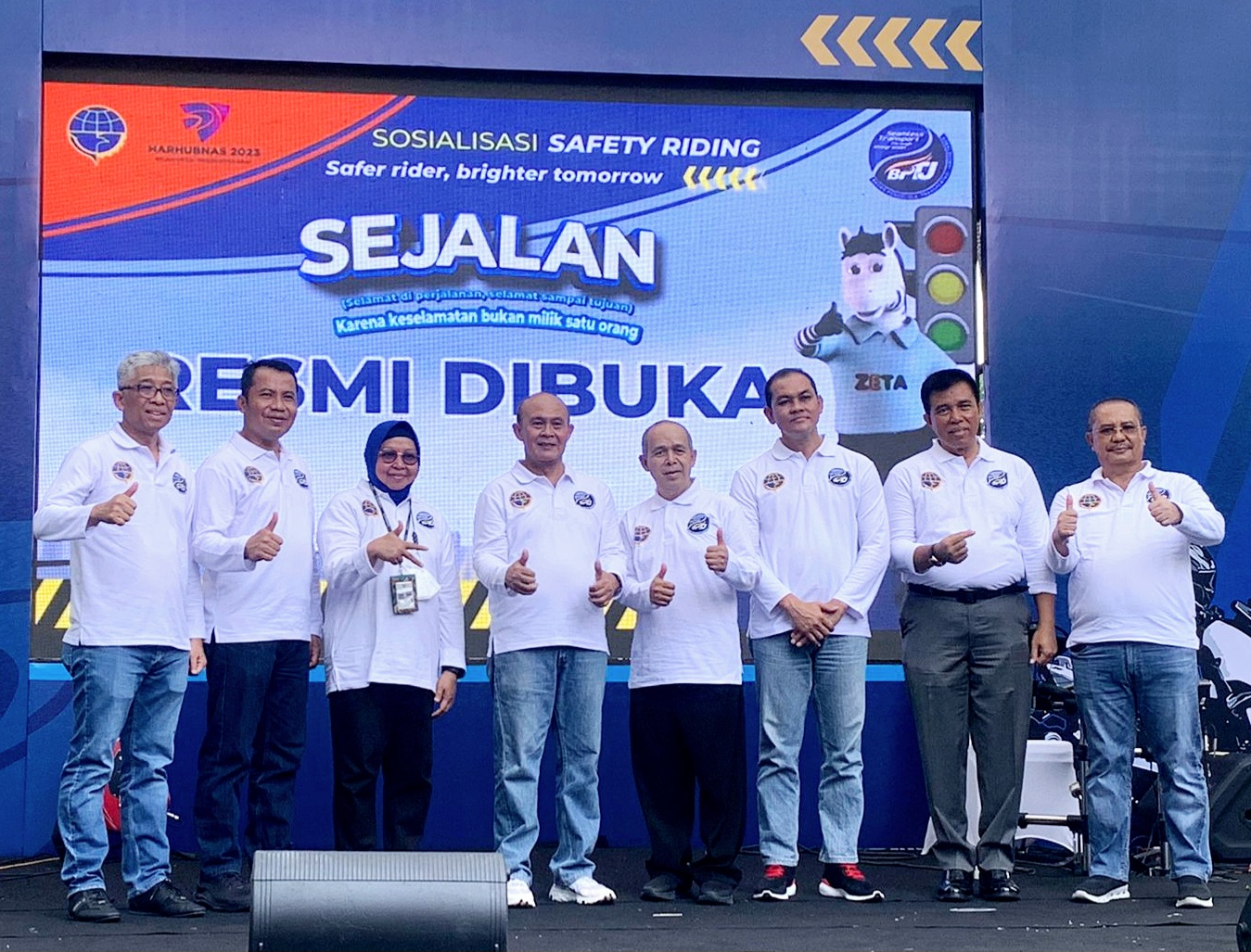WORKSHOP ON IMPLEMENTING SAFETY ASPECTS OF LIGHT RAIL TRANSIT (LRT) TRAVEL IN SUPPORTING LRT JABODEBEK OPERATIONAL PLANS

The LRT Jabodebek is one of the National Strategic Projects for developing urban mass transportation. This infrastructure was built to reduce the level of congestion in Jakarta and its supporting routes such as Bogor, Depok and Bekasi. It is our duty to ensure that LRT Jabodebek operations run safely and smoothly.
In order to increase knowledge of railway human resources and build synergy and collaboration with relevant stakeholders, the Sub-directorate of Engineering and Safety Improvement of the Railways Safety Directorate held a Workshop on Implementing Safety Aspects of Light Rail (LRT) Travel in Supporting the LRT Jabodebek Operation Plan.
In the workshop held on June 13 2023, the Director General of Railways, Risal Wasal conveyed the things that need to be paid attention to when preparing for the operation of the LRT Jabodebek. One of them is the preparedness for emergency response mitigation on the LRT Jabodebek. Where this must be in accordance with PM 69 of 2018 concerning Railway Safety Management Systems (SMKP) as well as the implementation of a Safety Assessment by the Directorate General of Railways on infrastructure, facilities and integration between infrastructure and facilities to ensure that the LRT Jabodebek meets safety aspects before operation.
The Directorate of Railways Safety also invited Jumardi as Head of the Center for Transportation Safety and Security Policy who plays the role of responder. Apart from that, Suprapto (Chair of the KNKT Railway Accident Investigation Sub-Committee), Edi Nursalam (Railway Safety Academician), Djoko Setijowarno (Transportation Observer), and Yayat Supriatna (Transportation Observer) were also present who played similar roles as responders.
In the workshop there were several resource persons present. Among them are Ferdian Suryo Adhi Pramono (Head of Sub-Directorate of Railway Operation Facilities, Directorate of Railways Infrastructure), Rosita (Head of Sub-Directorate of Cooperation and Business Development, Directorate of Railways Traffic and Transportation), and Rachmat Susilo (Head of Sub-Directorate of Transportation Infrastructure Integration, Management Agency Jabodetabek Transportation). Apart from that, there were also Darmansyah as SHE (Safety, Health, Environment) Manager LRT, Hardjita (Operation Manager I PT Adhi Karya), Roy Nababan (Head of SHE Department PT MRT Jakarta), Ari Kusharwanto (Project Director PT Mott MacDonald Indonesia), and Yanuar M. Najih (Business Development Manager PT Bureau Veritas).
Apart from that, there is also a Drafting Team consisting of the Chairman of the Jakarta City Transportation Council, Haris Muhammadun; Executive Director or INSTRAN (Institute for Transportation Studies), Deddy Herlambang; and Railway Safety Inspection Coordinator, Directorate of Railway Safety, Frederik Pongtuluran. From the workshop which took place in Jakarta, the following things were agreed:
- In carrying out its main duties and functions, the Directorate General of Railways has a function as a regulator to formulate policies and regulations in the railway sector. Safety is the shared responsibility of all stakeholders at the central and regional levels to provide safety guarantees for transportation users.
- LRT Jabodebek operations follow the safety, security and service regulatory framework stated in Law Number 23 of 2007; Presidential Decree No. 98 of 2015; Presidential Decree No. 65 of 2016; Presidential Decree No. 49 of 2017; as well as Minister of Transportation Decree No. 394 of 2015; Minister of Transportation Decree No. 377 of 2018; and Minister of Transportation Decree No. 2017 2019 as a guide that is expected to support policy direction in planning connectivity and accessibility by using collaboration between units in the formation of transportation policies.
- Anticipation of the management of the LRT Jabodebek must be carried out by harmonizing technical regulations or implementation instructions and consistency towards "Zero Accident" including aspects of technical feasibility and operational feasibility. Which is carried out through testing of LRT facilities and infrastructure; carrying out safety assessments; Fulfillment of SMKP with the support of certified human resources, which includes disaster risk mitigation/emergency response policy efforts within the scope of future regional planning development plans including vandalism disturbances and the development of Transit Oriented Development (TOD) at all LRT stations.
- The LRT Jabodebek line must be supported by a continuously integrated intermodal network and support from the government and related parties in making this happen. PT Adhi Karya as the developer should be responsible for intermodal integration and TOD. The integration operator can be selected PT KAI or PT Adhi Karya. In managing the area, local government support is needed.
- Regional governments through which the LRT passes are advised to have units in the railway sector. And the results of the workshop can be applied immediately.
- Safety and RITJ (Jabodetabek Transportation Master Plan) are key including accessibility and general safety standards. When LRT station nodes are operational, it is predicted that there will be firstor last mile activity including online motorbike taxi paratransit or motorbike taxis and public transportation, so simulation and supervision is needed for LRT customer service in the future.
- For operators to prepare to mitigate disruptions to potential LRT Jabodebek users to anticipate a surge in passengers due to the euphoria at the start of LRT Jabodebek operations.
- PM No. 69 of 2018 is a reference for the need for safety documents including safety assessments.
The role and collaboration and synergy of stakeholders is highly expected in efforts to create safe railways, including passengers, human resources, facilities and infrastructure. Optimizing the roles and functions of stakeholders is also needed to support the formation of a safe railway ecosystem that is in sync with statutory regulations in improving railway safety. (MJ)







.jpg)



Komentar
LOGIN FOR COMMENT Sign in with Google